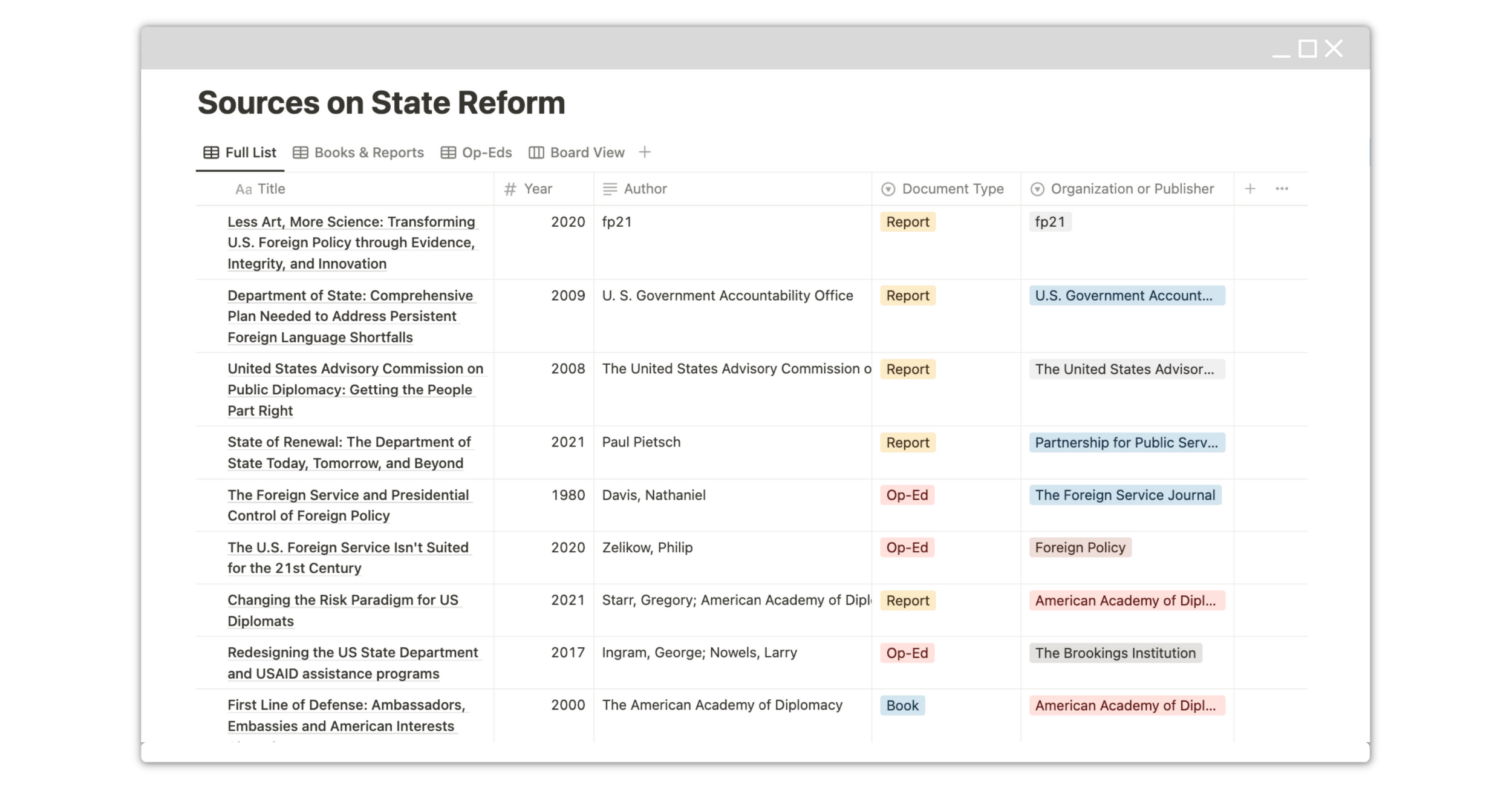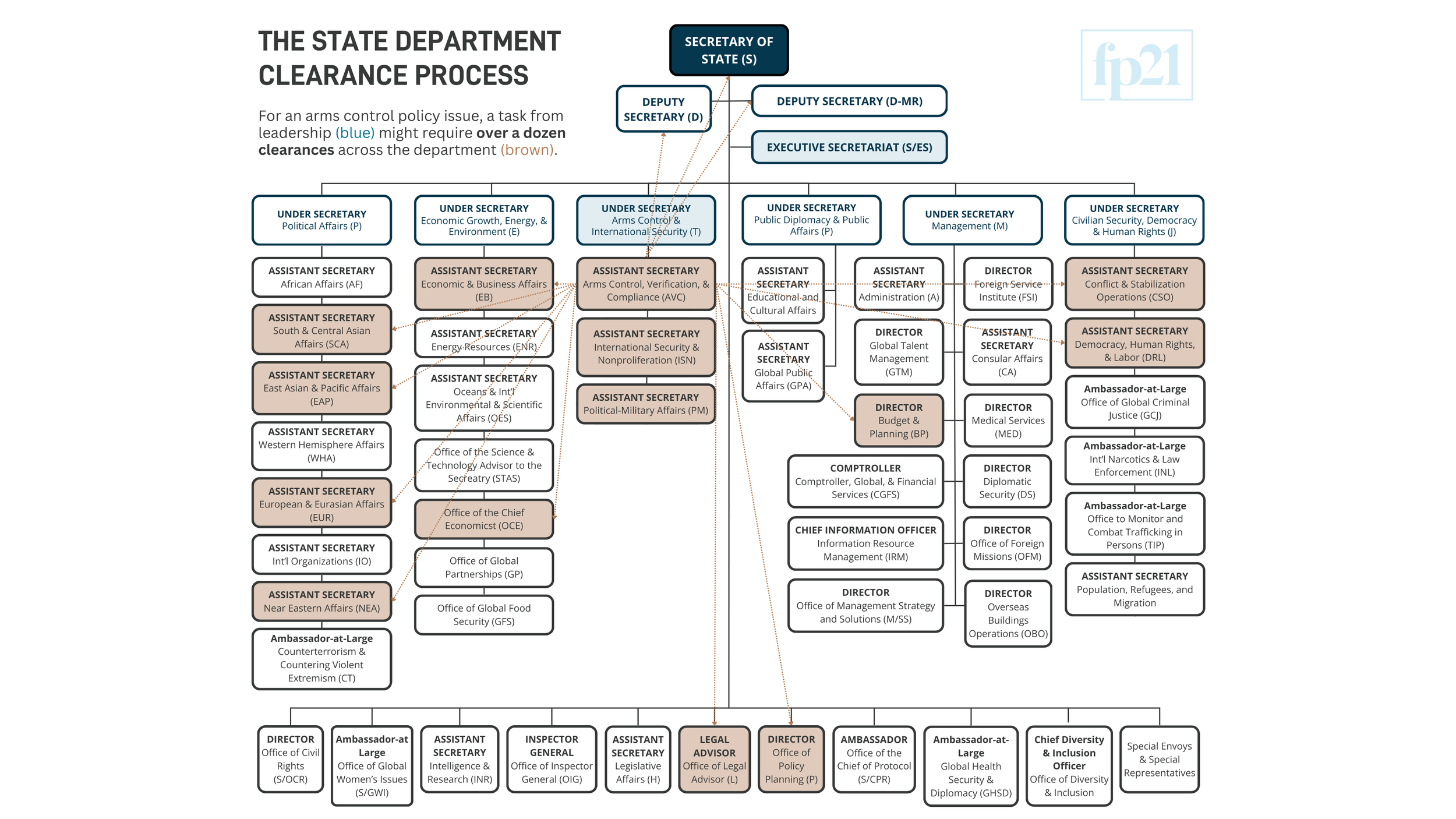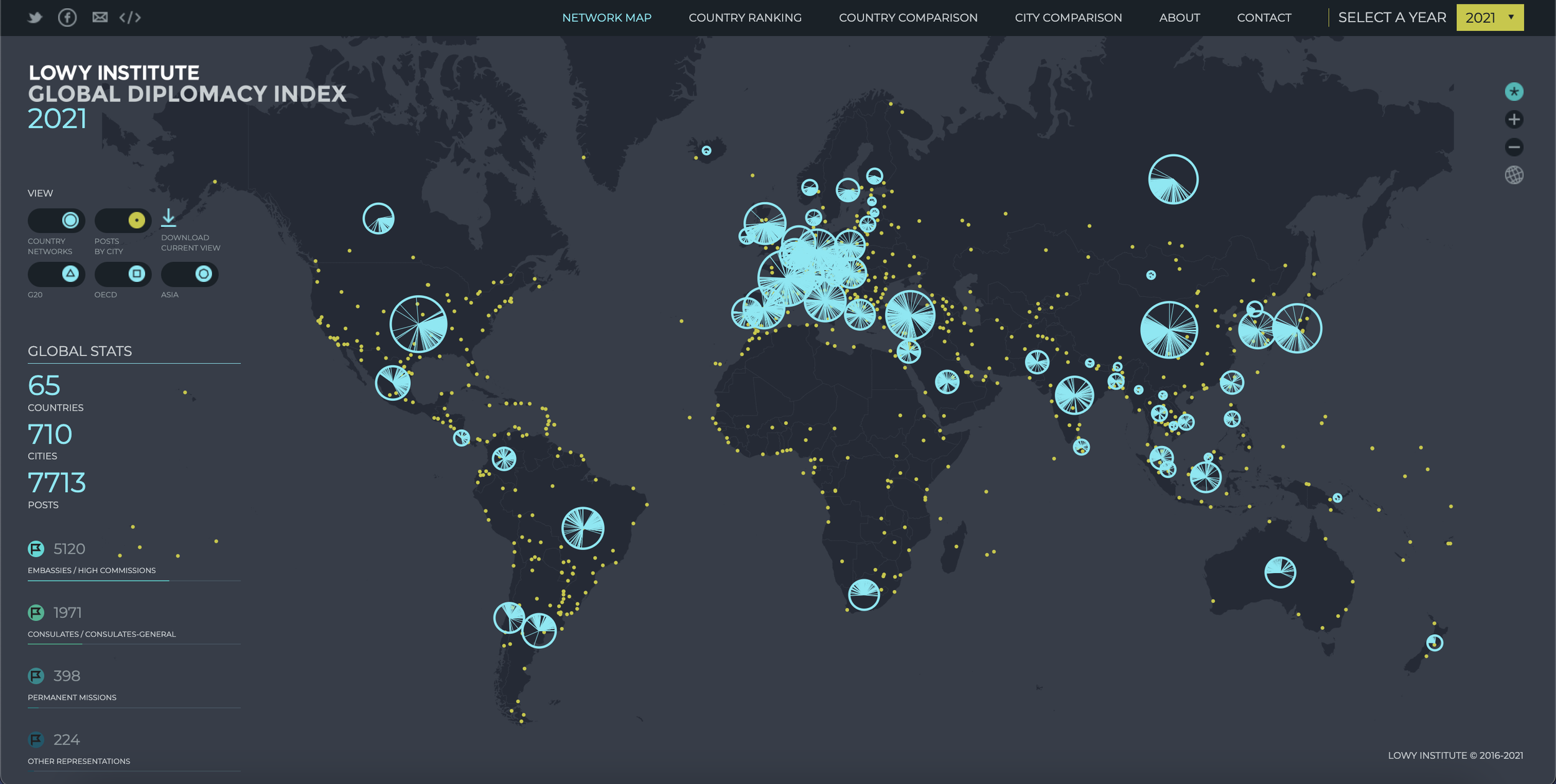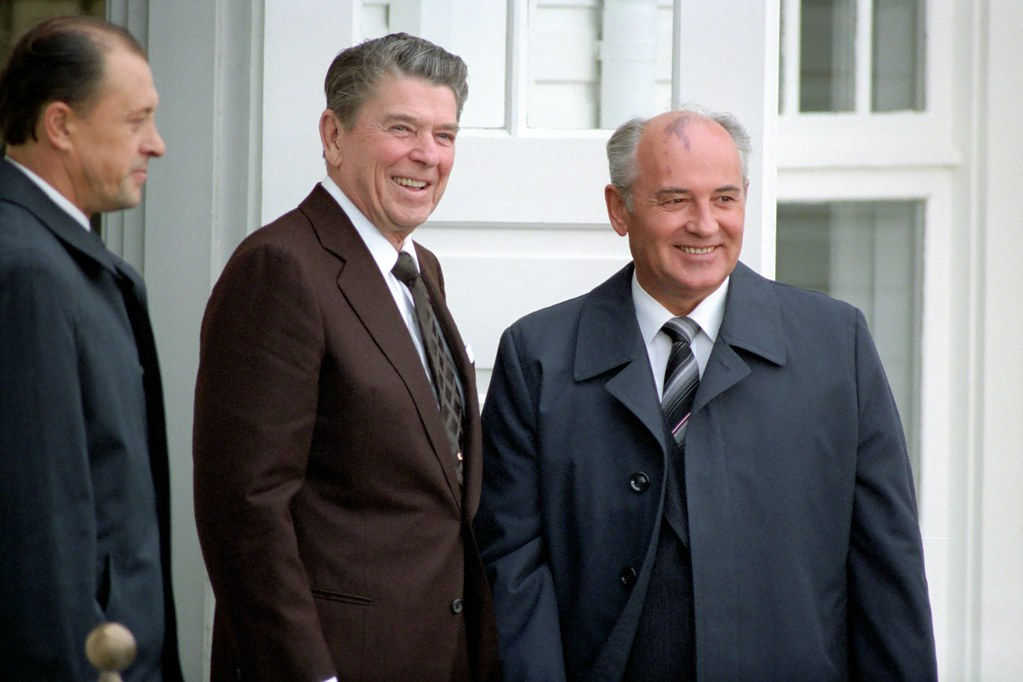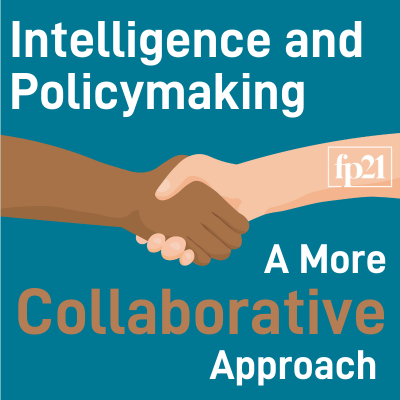Publications
fp21 is building a new culture of foreign policy. Explore our publications below.
Learning From History: A Database of Prior Reform Proposals at State
Toby Weed: fp21 created this database of State Department reform recommendations as a resource for those working to reform US foreign policy process. Too many would-be reformers proceed without reviewing the large body of work on State Department reform that has accumulated from prior attempts. Any reforms need to be carefully researched and based on the best available evidence.
American Foreign Policy Decision-Making at the Agency Level: The Department of State as Exemplar?
Jeff Jager: To coordinate and collaborate on national security issues, the State Department’s clearance process ensures that all possible stakeholders have to sign off on anything that State does. The process has some advantages but many downsides such as prioritizing consensus at the expense of policy outcomes. Jeff explains and evaluate the clearance process and considers ways forward.
To Quantify Or Not to Quantify? Foreign Policy Needs Measurement
Toby Weed: Foreign policy establishment needs to follow the example set by other fields and incorporate quantitative measurement into its analytical and decision-making processes. By measuring the phenomena and concepts central to the work – using mathematical language to discuss them and accompanying that discussion with empirical observation – foreign policy practitioners can reduce their uncertainty and make better decisions.
Does UNGA Matter? Examining the Research for Face-to-Face Diplomacy
Sanjana Patel: Is face-to-face diplomacy merely a symbolic practice, or does it hold unique value to meaningful shape international affairs? This article surveys evidence on the value of face-to-face diplomacy across a range of disciplines.
Intelligence and Policymaking: The Opportunity for a More Collaborative Approach
Gary Gomez: This paper explores the implications of a more collaborative and connected approach to intelligence analysis and policy formulation. It explores a model in which analysts and policymakers are co-located within policy offices at all levels of policymaking. The goal of this approach is to enable a better fusion of experience and knowledge to support holistic and relevant intelligence analysis and informed evidence-based foreign policy.


